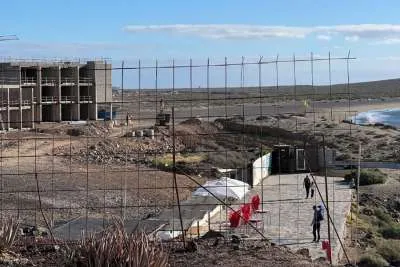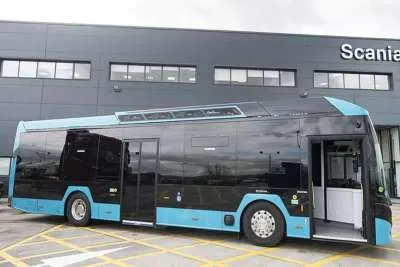How online casino game providers obtain necessary licences and certifications?
- 19-02-2025
- Business
- Sponsored Article
- Photo Credit: Pexels
In 2025, starting an online casino has never been so easy. In particular, the development aspects of hosting a platform on a website can be extremely low-cost. Because of this, it’s a very good time to be a game provider, as there are a near-infinite number of casinos to distribute the games through.
This is why websites like https://legalcasino.uk/, which collect and review many casinos, make it clear how much of an advantage proper certification is. The certified games hosted on licensed casinos are the only way that customers can wager their money.
IMPORTANCE OF LICENSING AND CERTIFICATION
Licences and certifications couldn’t be more important to both the operator and customers, which is relatively obvious. They’re a mediating body that ensures the operator is working within a set of rules that are generally aimed at fairness and security.
This fairness and security needs to of course extend to game providers. This is the only way to make sure games have the correct outcomes and probabilities that they claim to have. It’s a necessary guarantee for casinos, who need to ensure their customers are getting a fair game.
Certifications are slightly more specific than general licences, as you gain certification for things like Random Number Generators (RNGs) - so the games are actually random. It is also a way to access reputable payment systems and software providers, who are often eager to ensure their products are in the hands of trusted hands.
CHOOSING THE RIGHT JURISDICTION
Selecting the right jurisdiction is going to be important, as they’re not all equal in terms of trust or how they go about regulating game providers. Popular ones include the Malta Gaming Authority (MGA) because they offer access to European markets, yet have a fairly rigorous application process. Curaçao is known for its cost-effectiveness and streamlined procedures, which is perhaps less trusted in Europe. The UK Gambling Commission (UKGC) is one of the strictest, but as a result, one of the safest. It demands strict compliance with player protection and anti-money laundering policies in particular.
Each jurisdiction has its own unique requirements which are important to check. Sometimes, the choice will be due to budget, but research should be done carefully because they need to meet operational needs.
Keep in mind that depending on the chosen regulator, requirements will vary surrounding incorporation, server location, tax, and general compliance standards.
PREPARING FOR THE LICENSING
Before applying, consider these steps:
1. Business Incorporation: Register the business in the chosen jurisdiction. Ensure local representation if asked.
2. Documentation: Gather essential documents like your ID, financial statements, a business plan, and anti-money laundering protocols.
3. Software Compliance: Ensure gaming software meets jurisdictional standards, such as RNG certification from accredited labs like iTech Labs or eCOGRA to verify fairness.
4. Payment Integration: Partner with licensed payment service providers to facilitate secure transactions.
In order to apply, there will often be a one-time application fee that ranges from a few thousand dollars to over a hundred thousand. Costs vary widely, and an annual fee may be required along with frequent audits.
The timeline for approval usually spans 2 to 4 months but can be extended depending on the complexity of the application or additional requests from regulators. A well-prepared application, demonstrating a strong commitment to regulatory standards, is crucial for navigating this intricate process. Some regulators offer online application portals, which can streamline submissions.
CERTIFICATION REQUIREMENTS
Game providers ought to secure their certifications beyond simple licensing to confirm all of their software’s fairness and reliability. Random Number Generator certification is central to this, given that casino games rely on the principle of unpredictability. Labs like GLI or eCOGRA are the ways to get certified, though there are others, while ISO/IEC certifications are more geared towards information security. Return-to-Player rates actually differ in requirements depending on the regulating body, so these need to be looked at on a case-by-case basis.
The certification processes generally happens alongside licensing applications, and there will be collaboration required with independent testing agencies.
COMPLIANCE POST-LICENSING
Obtaining a licence isn't actually the finish line because maintaining compliance is perhaps more important for continued operation, as this is where it’s easier to slip up. You can expect regular audits of financial records, along with software updates and RNG performance. Don’t forget about data protection compliance either, as adhering to GDPR or similar laws is going to be taken very seriously.
AML compliance is where transactions are monitored and suspicious activity is flagged, though there is some separation between what the casino operator is liable for and what the game provider is. Licences typically need annual renewal, and missing these deadlines can render an entire operation as illegal.
Non-compliance leads to hefty fines, which are damaging to cash flow, but license revocation is a serious concern too. Staying proactive is the only way to remain compliant, and this is done by having a compliance strategy with comprehensive training for all staff.
Conclusion
Obtaining licences and certifications can be intimidating, but it’s a fairly refined process for most major bodies as this is big business in 2025. Document preparation should be taken seriously, and ongoing checks on the software and RNG too.
Gamble Responsibly: Gambling should be enjoyed as a form of entertainment, not a way to earn money. Always gamble within your financial means and set limits to stay in control. You must be 18 or older to participate in gambling activities. If you or someone you know has a gambling problem, seek help from organisations like FEJAR (Federación Española de Jugadores de Azar Rehabilitados) at www.fejar.org. Stay safe and gamble responsibly.



























































